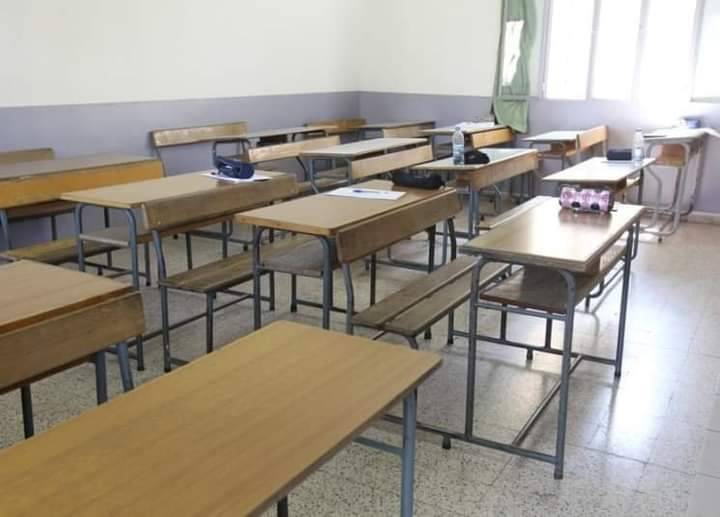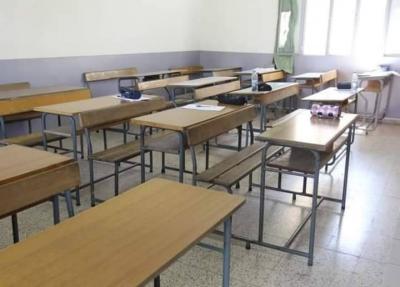A fourth academic year begins without any vision to tackle countless educational challenges. The only "strategy" employed by the Ministry of Education to address the crisis involves bargaining with teachers for "modest" financial aid in exchange for a decrease in their salaries, followed by threats of disciplinary actions against those who fail to attend school due to high transportation costs. Over 39,000 teachers in public schools and more than 50,000 in private schools are forced to face additional obstacles. More than one million students are at risk of losing education once again, having already lost a significant portion since the protests of October 17, the complete lockdown resulting from the COVID-19 pandemic, the financial and economic crisis, and teacher strikes.
Donors Are Responsible
Evaluating the performance of the government and the Ministry of Education and pressuring them to devise a plan to address the crisis was the aim of the survey conducted this summer by researcher Maha Shaib and researcher Mohammad Hamoud at the Lebanese Studies Center involving 1,512 teachers and 2,700 parents across eight governorates. The survey included interviews with representatives of teachers, parent unions, educational stakeholders, and civil society to discuss the results. For educational researchers, the problem does not lie in the funding provided by donors to the education sector in Lebanon, which has been available for over 15 years, but in the failure and mismanagement of the Ministry of Education and the donors' reluctance to hold them accountable and demand transparency in the expenditure of funds. According to the survey's authors, local and international communities should pressure Lebanese authorities now more than ever to prepare for a successful academic year.
In a meeting held recently by the Lebanese Studies Center to discuss the survey results, it was decided to form a core educational advocacy group comprising teachers, parents, researchers, educational stakeholders, and journalists, active locally and internationally to push for structural reform in the Ministry of Education and enhance transparency and accountability mechanisms in staffing and decision-making.
Impact of the Crisis on Teachers
The collapse of the Lebanese pound has led to more than a 90% reduction in the value of teachers' salaries. While some have benefited from additional financial aid, salaries remain low. According to survey participants, the average monthly income for a teacher is $131, while monthly transportation costs are $128, causing 66% of them to take on a second job to cover their living expenses. Two-thirds of these individuals also reported that they are forced to borrow money and forgo basic necessities, while 73% stated that they face difficulties paying their bills, a figure not surprising given that the average monthly electricity and internet costs represent 139% of teachers' average monthly income. Additionally, 99% of those surveyed indicated that the crisis has deprived them of access to healthcare services.
Moreover, high transportation costs have forced 60% of teachers to miss school teaching days. As a result, 20% of them faced disciplinary actions due to absenteeism and were deprived of the additional compensation of $90. It should be noted that not all teachers received this compensation, and not all payments reached everyone, with the actual value being $66 as it is disbursed at the exchange rate. The daily transportation allowance has not been paid at 95,000 LBP, 65,000 LBP, or even 24,000 LBP. These difficulties have negatively affected their enthusiasm to work and their mental health, and have led to a deterioration of their relationship with their school administration. On another note, more than half of the participants felt that the performance of teachers’ representatives from unions in both public and private schools was unsatisfactory.
This dire situation and the failure of involved parties to respond adequately to the crisis have led to despair among many teachers, with 73% planning to leave the education sector, while three out of four teachers indicated that they plan to leave Lebanon.
Impact on Students
Children in Lebanon, including Syrian refugees, have missed a significant portion of their education over the past three years, which could destroy their academic future. According to one-third of parents and teachers surveyed, the crisis has led to a decline in children's academic performance and overall mental health, while 10% have left their schools and 15% have repeated their grade.
Impact on Parents
The average annual school fees amount to $1,037 and transportation fees to $1,318 that parents pay, totaling $2,355 per child. Seven out of ten parents reported that their children's school demands payment of part of the tuition fees in U.S. dollars, in addition to the continuously rising costs in Lebanese pounds. Against this increase in school fees, the average monthly income of families reported by parents is $462, meaning they spend 42% of their annual income on the education of one child. These figures do not include additional education costs such as books and stationery.
With rising school fees, half of the parents announced that they recently transferred their children from private to public schools, with 87% indicating that they can no longer afford private school costs. Additionally, transportation costs represent another burden for parents, with an average expenditure of $110 allocated for their children's transportation to school. All these challenges jeopardize children's academic futures, as 72% of parents confirmed that they may not be able to afford their children's education, while 10% indicated that their children might have to enter the labor market early.
School Readiness
The economic crisis has also affected schools' ability to open their doors, with three-quarters of participating teachers reporting that their schools are not fully prepared to welcome a new academic year amid fuel shortages and a lack of staff, which may affect the quality of teaching for the fourth consecutive year.




